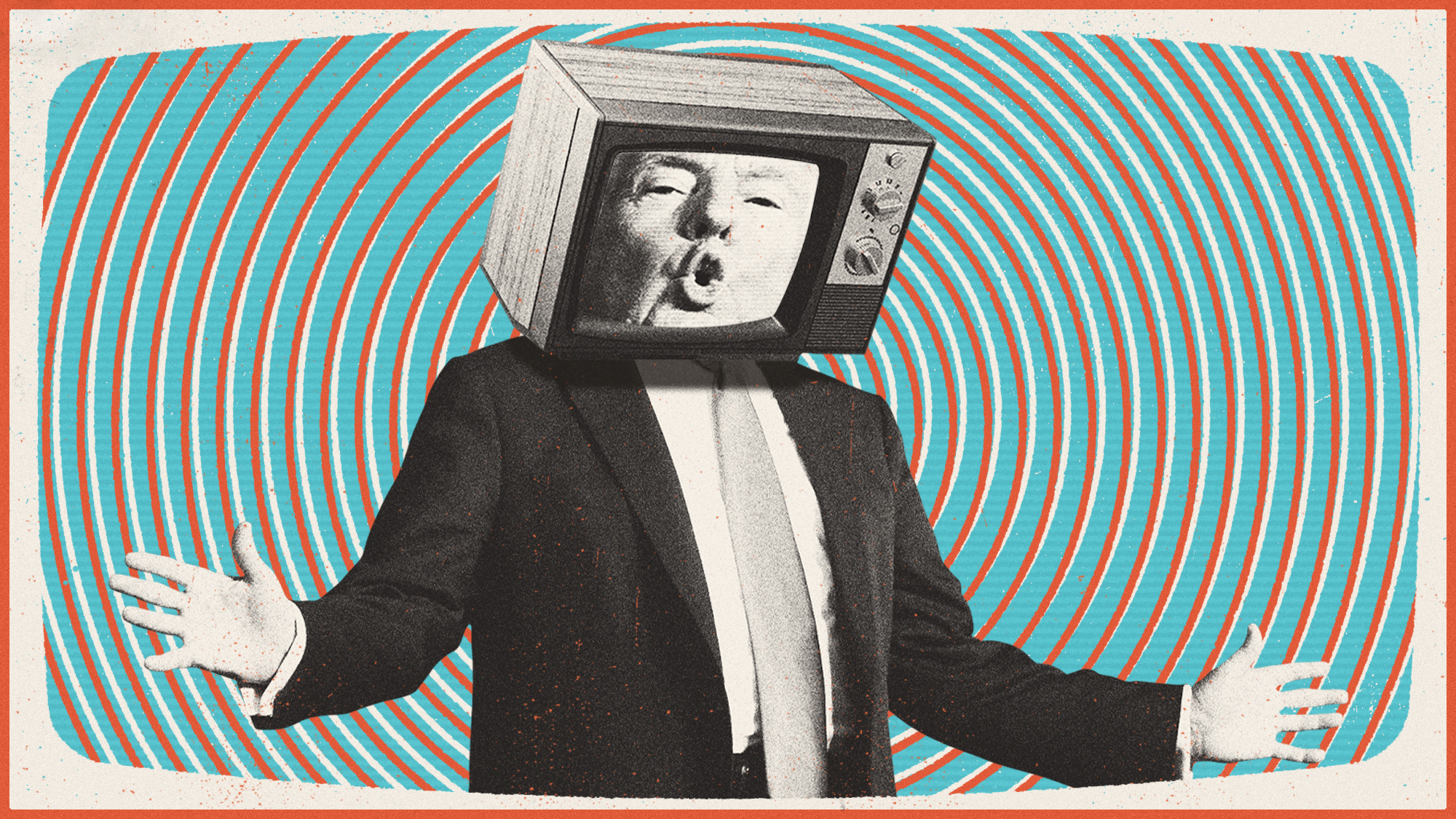How the far-right media bubble failed Donald Trump
By ensconcing himself in the comfort of friendly — and increasingly conspiracy-driven — media, the former president is stuck in a feedback loop of his own making


A free daily email with the biggest news stories of the day – and the best features from TheWeek.com
You are now subscribed
Your newsletter sign-up was successful
When Donald Trump during last week's presidential debate erupted with the baseless assertion that Haitian immigrants in Springfield, Ohio were "eating the pets" of local residents (city officials and local law enforcement have vehemently denied the allegation) it may have seemed to many casual viewers like a jarring non sequitur as unexpected as it was baffling. For viewers familiar with the nebulous online ecosystem of ultra-conservative media and MAGA digital influencers, however, Trump's claim was much less of a shock. To those viewers, it was the inevitable endpoint for a piece of evidence-less internet lore that had spent days burning its way up the ladder of the far-right blogosphere. Starting as a post in a local Facebook group "based entirely on third-hand hearsay" said NewsGuard, which traced the claim to its source, the allegation was quickly amplified by figures like Elon Musk, vice presidential nominee Sen. J.D. Vance (R-Ohio) and ultimately Trump himself.
In the days following last week's debate, Trump's invocation of the pet-eating myth has become a meme, complete with humorous remixes and even a tongue-in-cheek shout-out from President Joe Biden. Perhaps more importantly, the episode offered a crucial peek into how Trump has ensconced himself in a conservative media bubble, highlighting the risk of shaping his worldview and electoral messaging on a notoriously closed loop.
'More interested in winning the fight on Twitter'
Trump's debate performance likely "seemed unintelligible without a deep understanding of obscure corners of far-right social media," NBC News said. Full of "familiar dog whistles to people who spend time on fringe message boards," the risk for Trump is that it's "not clear how the outlandish rumors may have landed with everyone else." Although Trump's political career has been predicated in part on "exploiting social media's power to broadcast lies and conspiracy theories to the masses," CNN said, his invocation of the pet-eating myth suggests he has "veered so deep into the internet muck he can't see through it."
The Week
Escape your echo chamber. Get the facts behind the news, plus analysis from multiple perspectives.

Sign up for The Week's Free Newsletters
From our morning news briefing to a weekly Good News Newsletter, get the best of The Week delivered directly to your inbox.
From our morning news briefing to a weekly Good News Newsletter, get the best of The Week delivered directly to your inbox.
"You stupid mf'ers just got Trump to repeat your lie about the pets," far-right commentator Erick Erickson lamented on X. "Congrats on setting the news stories tomorrow by lying so Trump picks it up and says stupid shit." Trump's problem is having "put Twitter edgelords around himself," Erickson said in a separate post. Accordingly, Trump seems "more interested in winning the fight on Twitter than the fight for the country."
Trump is "personally addicted to getting his news from these crazy people," said Media Matters for America's Matt Gertz on the "Tell Me Everything" podcast. Not only is he surrounding himself with conspiracy theorists like Laura Loomer, but his media diet consists of "watching Fox News and seeing what people are Truth Social-ing at him and basically immersing himself in these crazy places." Trump's choice to surround himself in the "safety blanket" of his MAGA base affords him the "comforting illusion of hitting a grand slam with every half-baked response" even as it turns his campaign into "something of a niche experience," said The Hill.
The 'Wild West of social media'
The essential tension comes down to a dynamic between an "online world in which things get taken to the nth-degree because its economy rewards that sort of hyperbole" but which "don't hold up" when removed from that limited environment, The Washington Post said. "What else can you do but marvel at how strange it all is?"
In part, this is a symptom of the fact that the "right suffers from a talent shortage," said conservative commentator Sohrab Ahmari at The New Statesman. The resulting vacuum means there are "many applicants to be the next Fox or Newsmax loudmouth" for whom success doesn't come from enterprise reporting or advanced rhetoric, but merely "bellow[ing] about how 'they' want us to eat bugs and take poison vaccines."
A free daily email with the biggest news stories of the day – and the best features from TheWeek.com
The recent wave of mocking allegations that J.D. Vance has had sex with furniture that originated in left-leaning circles online highlights the Democrats' and Republicans' "very different relationships with the informational Wild West of social media — a difference shaped by Trump himself," The New York Times said. "I don't think anybody believes that [Kamala] Harris thinks that J.D. Vance actually has sex with sofas,” communications expert Jeff Giesea told the Times. The problem is that "Trump can't tell the difference between fake news and reality, ironically."
Rafi Schwartz has worked as a politics writer at The Week since 2022, where he covers elections, Congress and the White House. He was previously a contributing writer with Mic focusing largely on politics, a senior writer with Splinter News, a staff writer for Fusion's news lab, and the managing editor of Heeb Magazine, a Jewish life and culture publication. Rafi's work has appeared in Rolling Stone, GOOD and The Forward, among others.
